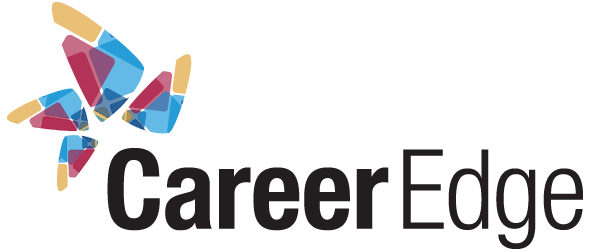Visually impaired since birth, a human rights lawyer and former Paralympian is convinced history is on the way. With three Olympic medals on her mantle, Honourable Carla Qualtrough welcomed another challenge in her life – challenging her country’s employers to make history.
“This law, when created, will be very proactive and basically tell employers, and service providers, and programmers, and the government itself, these are the expectations we have on you and we’re going to hold you to account.”
Appointed to the cabinet by Prime Minister Justin Trudeau as Canada’s first Minister of Sport and Persons with Disabilities, the leader instructed Qualtrough to “go out and change the world.”
Qualtrough received thousands of online submissions and engaged with more than 100 stakeholder organizations as she prepared Canada’s first national accessibility legislation. The upcoming Canadians with Disabilities Act will fight many employment-related accessibility issues.
“Everything impacts employment,” Qualtrough said in an interview. “If you don’t have a building environment that’s accessible, you can’t work there. If you don’t have the transportation that gets you there, you can’t work there. If you don’t have technology that’s accessible, you can’t work there. All roads lead back to employment in some way. So in that regard, absolutely employment will be impacted quite significantly by this law.”
In December 2014, Statistics Canada reported that 49 per cent of Canadians with a disability were working (compared to 79 per cent of the general population).
When Qualtrough assumed the role, she was surprised little to no progress had been made in decades. She believed national unity – federal legislation that co-exists with provincial laws – is imperative to increasing the employment rate of people with disabilities. Nova Scotia recently became the fourth province to enact accessibility legislation in April.
Action Required
Joe Dale, executive director of the Ontario Disability Employment Network, said legislation isn’t enough, as it doesn’t dispel misconceptions or guarantee interviews and job offers.
“To build legislation that has an employment focus where one of the biggest barriers is attitudinal and bias is a tough thing to do in legislature and it’s a tougher thing to sell.”
Qualtrough recognized that advocacy for inclusion and equity doesn’t always equal opportunities, but pointed out that the federal government knows hiring people with disabilities creates business advantages. She cited that research exists to show these job seekers are well educated, loyal, and innovative. Qualtrough highlighted that it was a chance to address an aging population and labour shortages.
“If we don’t get this right, we are missing a huge opportunity.”
Working Together
Plamen Pletkov, Toronto-based vice-chair for Ontario at the Canadian Federation of Independent Business, endorsed formal partnerships that connected organizations to qualified job seekers.
“It’s a good idea to establish that link between employers and people with disabilities, whether it’s through online job banks or something more specialized…30 per cent of small- and medium-sized businesses in [Ontario] have expressed it’s difficult for them to find the right people for a job.”
The new legislation would only apply to areas under federal jurisdiction, such as telecommunications and banking, but Qualtrough predicted that leadership will inspire and motivate other industries to create change.

Candice Leung, Career Edge Recruiter and GWD Alumna
As Canada’s first online job posting board, Career Edge has launched the careers of more than 600 graduates with disabilities (GWD), providing them with paid internships at almost 50 organizations. Career Edge has placed interns at small- and medium-sized businesses to large organizations, award-winning companies, including more than half of the employers listed on Indeed’s Best Places to Work in Canada 2017.
Candice Leung, GWD alumna and recruiter for Career Edge, matches candidates to positions. She talked about the responsibility that job seekers have in becoming qualified applicants.
“As much as employers play a part in providing opportunities for candidates to grow and thrive as professionals, it’s also important that our candidates work hard to build the skills and connections they need in order to succeed in the future. A huge part to one’s success is their willingness to work hard, take initiative and show genuine interest in their role. Employers will always recognize hard work – and when I am recruiting for suitable candidates for a role, those are the qualities I am looking for. Right now we have approximately 200 recent graduates with disabilities in our candidate pool with an array of skills and abilities. If an employer wants to increase their diversity in the workplace, we have the qualified candidates to help them do so.”
Moving Forward
In late August, a reshuffling of Prime Minister Trudeau’s cabinet left Honourable Qualtrough as the Minister of Public Services and Procurement, and Honourable Kent Hehr as the new minister in charge of accessibility legislation. Hehr has served on the boards and committees of many organizations advocating for accessibility.
In an interview, he said he was excited to lead Canada in his new role, and that bringing in new legislation will allow our country “to lead a path forward in a progressive fashion that is going to better serve” the 14 per cent of Canadians who have a disability.
Predicting how the shift will affect the prospective Canadians with Disabilities Act is difficult, but nothing suggests a leadership change will stop or delay these new laws.
In her last week as Minister of Sport and Persons with Disabilities, Qualtrough said, “We need to remove barriers because you’re entitled to live in a world that thinks of you and includes you as someone with a disability.”
Now, it’s up to Honourable Hehr to go out and change the world – and Canada’s employers to make history.

